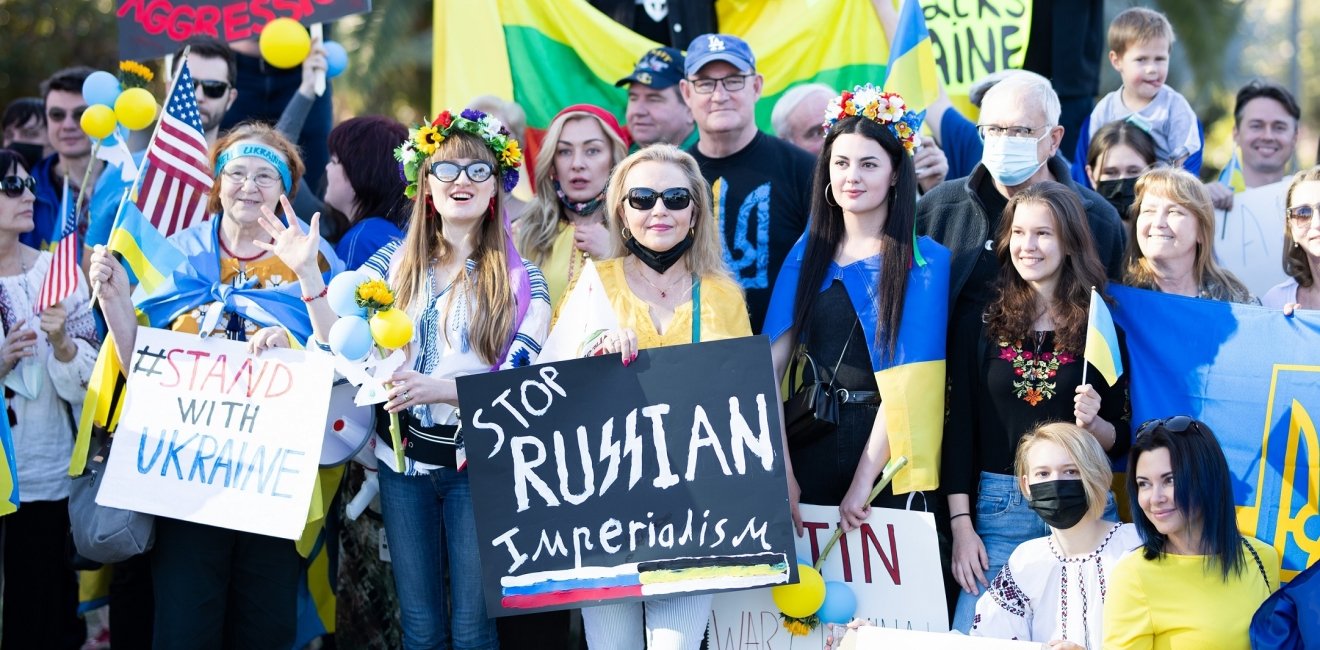
A blog of the Kennan Institute
BY VICTOR ANDRUSIV
The recent tensions around Ukraine have brought the world to the brink of a global confrontation. Europe has not faced such a massive threat since the end of the Cold War. It seems that Putin has decided to risk it all in a single bet and gain his point by threatening a global confrontation and full-scale intervention in Ukraine. While most Western observers are concerned about the fate of Ukraine, the other face of the conflict concerns the fate of Russia. How might the future of the Russian Federation develop because of a possible war with Ukraine?
Break the Backbone of Revanchism
In one of his interviews, Sergey Karaganov, a leading Russian political theorist, gave voice to an idea that, in my opinion, is the answer to the only possible future for Russia. His interviewer told him that the well-being of Austria and Germany improved considerably after they gave up their claims to global power, suggesting a comparison between Nazi Germany and Putin’s Russia. In response, Karaganov bluntly stated that, unlike those countries’ spine, Russia's backbone has never been broken: “We are a nation of conquerors … while they were conquered.” For Karaganov, the unbroken backbone actually means an opportunity for revanche, or the return of a nation’s lost territory. But a war loss may actually be the only way for Russia to return into the family of nations.
The comparison between Nazi Germany and Putin’s Russia, which has become common recently, may have something to it. Both cases are characterized not by a sane politics but by revanchism and ressentiment. In his thinking, Putin opposes Russia to NATO and seeks to return to the global distribution of spheres of influence as it existed in 1997, prior to NATO’s expansion to Eastern Europe. He sees NATO’s subsequent expansion to the east as a betrayal, and considers revenge for this treachery to be righting a historical wrong. The Kremlin’s ideological claims to Ukraine show the true face of the matter, which admits no compromise: there can be no stable Russia in the foreseeable future, or peace and security in Europe, so long as the Kremlin deems its claims unpaid. The demand to bar Ukraine from NATO, which would violate NATO’s charter, proves that Putin is seeking conflict and is looking for a reason to be first mover. For the Kremlin, it is the military scenario today that is the primary tool for achieving the desired result: Russia’s return to greatness and restoration of its sphere of influence.
All of this has echoes with the situation on the eve of World War II. Germany and Hitler sought revenge for Germany’s shameful defeat in World War I. Hitler did not want to agree calmly on new lands or boundaries of influence, as the Munich Treaty showed. He wanted war. Today, this horrible lesson needs to be revisited. When dealing with revanchism and ressentiment, it is impossible to reach a rational agreement on peace and stability.
The Best-Case Scenario for Everyone
Most analysts look at potential scenarios when considering a war with Ukraine. But it is scenarios for the future of Russia after such a war that need to be delved into. The best possible scenario would be a pro-Western, democratic Russia. However, this is impossible, given Putin's current revanchism. Only a defeat could change the situation, a defeat that would force Russian society to reassess its behavior in the international arena, as Germany was forced to do.
Either invading Ukraine or refusing to do so could be a major setback for Putin, one that could lead to internal transformations in Russia. The war in Ukraine could become for Russia what Afghanistan was for the Soviet Union. The weakened economy and incomprehensible mass casualties during the long Afghan intervention destroyed the power of the Soviet regime. Later, it was replaced by pro-Western democratic forces in many of the Kremlin-controlled republics. Today, however, the only organized opposition to Putin is the imprisoned liberal Alexei Navalny. The weaker Putin becomes, the greater the chance that Navalny will be released and gain power. A defeat in Ukraine would certainly trigger such a scenario in Russia.
Despite the doubts expressed by many observers, Ukraine has a strong chance of winning any military confrontation with Russia. The morale of the Ukrainian army and the willingness of the population to defend the country are not comparable with the 2014 situation. Yes, the Russian military forces significantly outclass the Ukrainian forces in terms of technology, but they are well behind in the number of battle-tried people and inferior in fighting spirit. In addition, the offense must muster three times as much military capability to achieve success. All this means that an invasion of Ukraine would be risky and would create insupportable losses for Putin in terms of economic costs and lives lost. Russian society is not prepared to accept such losses and hardships. It would also be impossible to explain the colossal spending needed to maintain an occupied Ukraine.
Ukraine has a truly good chance of prevailing in any military conflict if it keeps getting comprehensive support from the West. Each lethal weapon provided to Ukraine and each new sanction imposed against Russia increases the possibility of Ukraine’s victory. And—very important—they all increase the chance of having a new future Russia, a country that makes a real contribution to peace and security in Europe.
The opinions expressed in this article are those solely of the authors and do not reflect the views of the Kennan Institute.
Author


Kennan Institute
After more than 50 years as a vital part of the Wilson Center legacy, the Kennan Institute has become an independent think tank. You can find the current website for the Kennan Institute at kennaninstitute.org. Please look for future announcements about partnership activities between the Wilson Center and the Kennan Institute at Wilson Center Press Room. The Kennan Institute is the premier US center for advanced research on Eurasia and the oldest and largest regional program at the Woodrow Wilson International Center for Scholars. The Kennan Institute is committed to improving American understanding of Russia, Ukraine, Central Asia, the South Caucasus, and the surrounding region through research and exchange. Read more

Explore More in Focus Ukraine
Browse Focus Ukraine
Talking to the Dead to Heal the Living

Ukrainian Issue in Polish Elections


